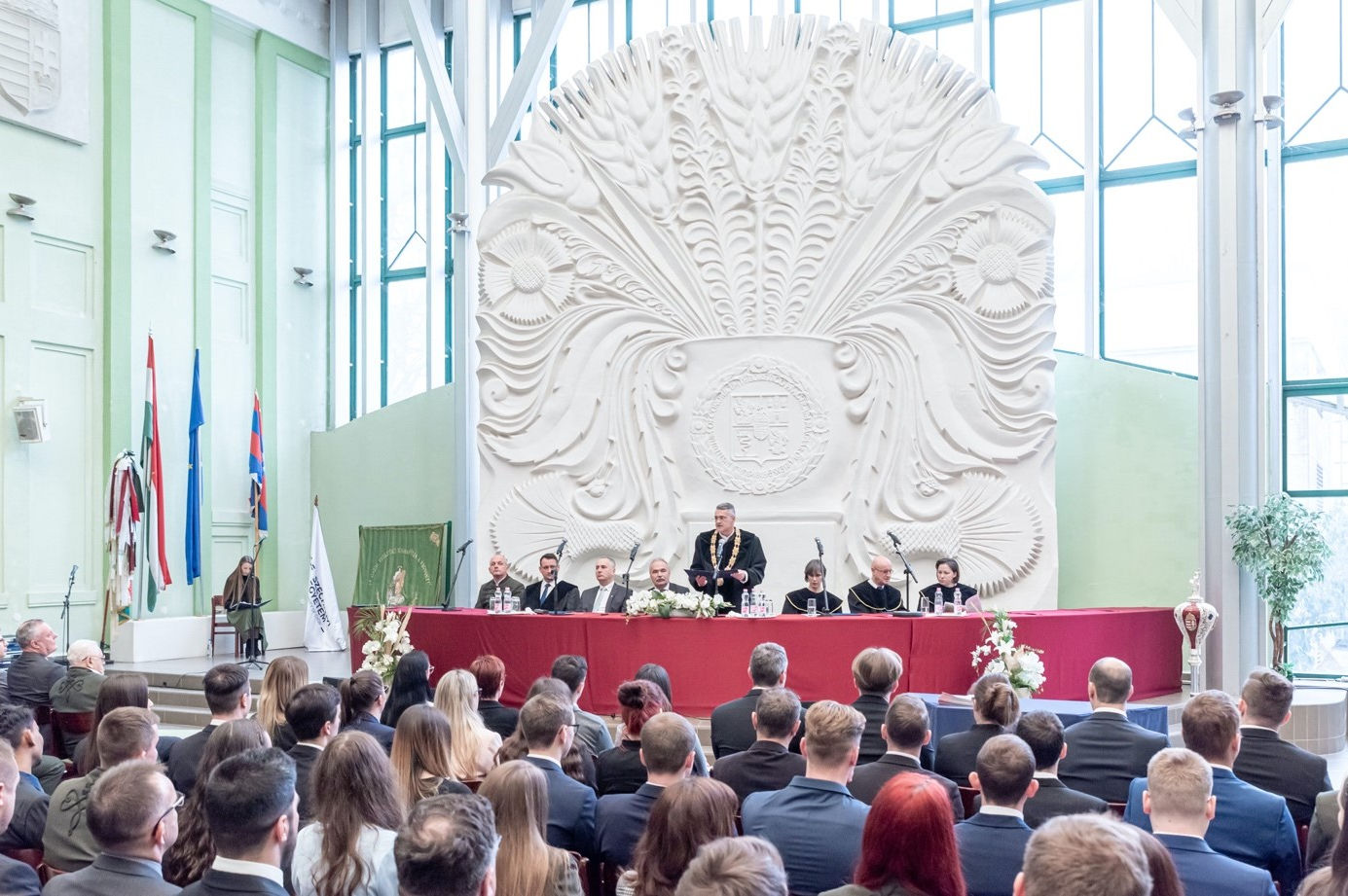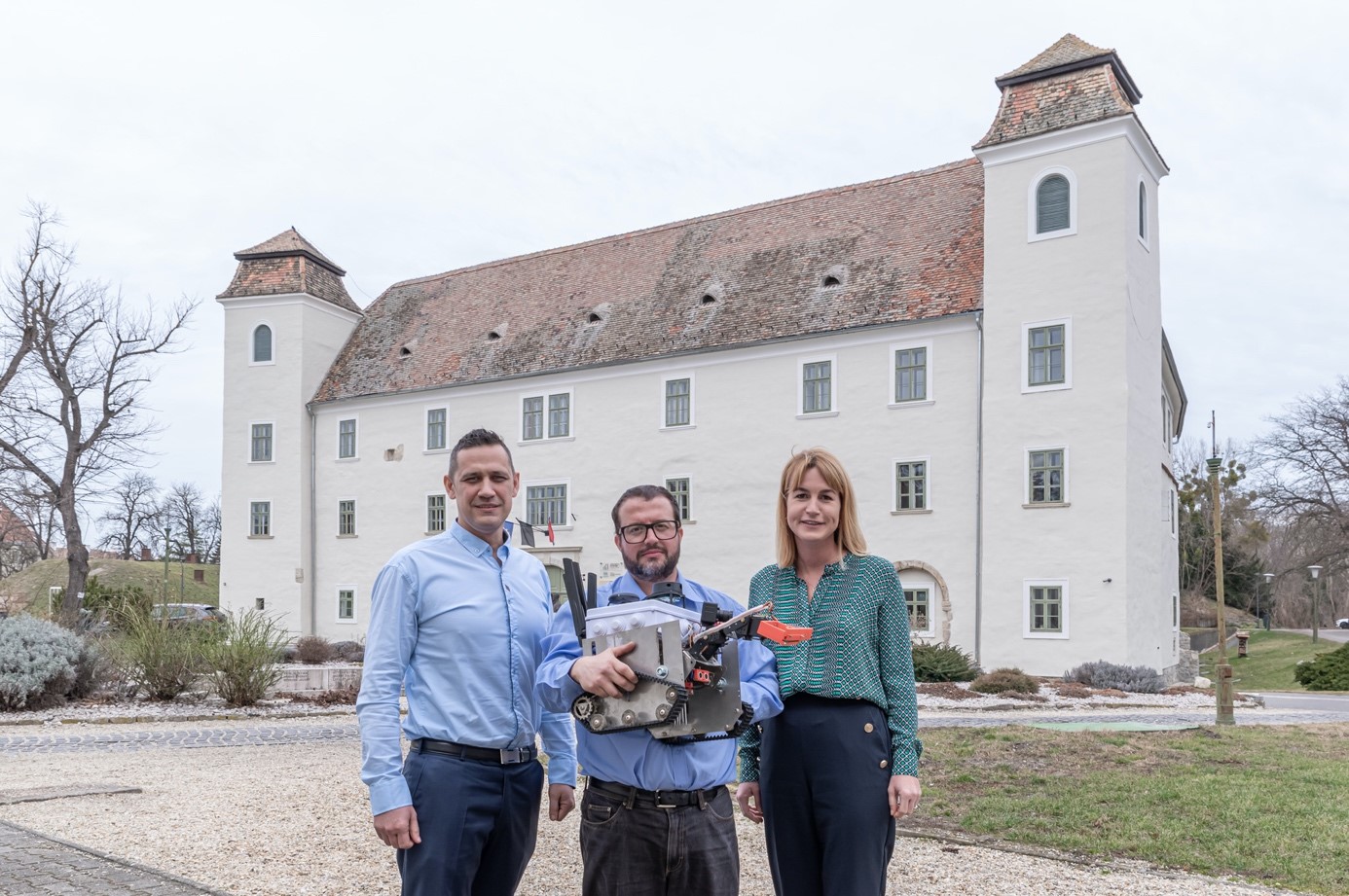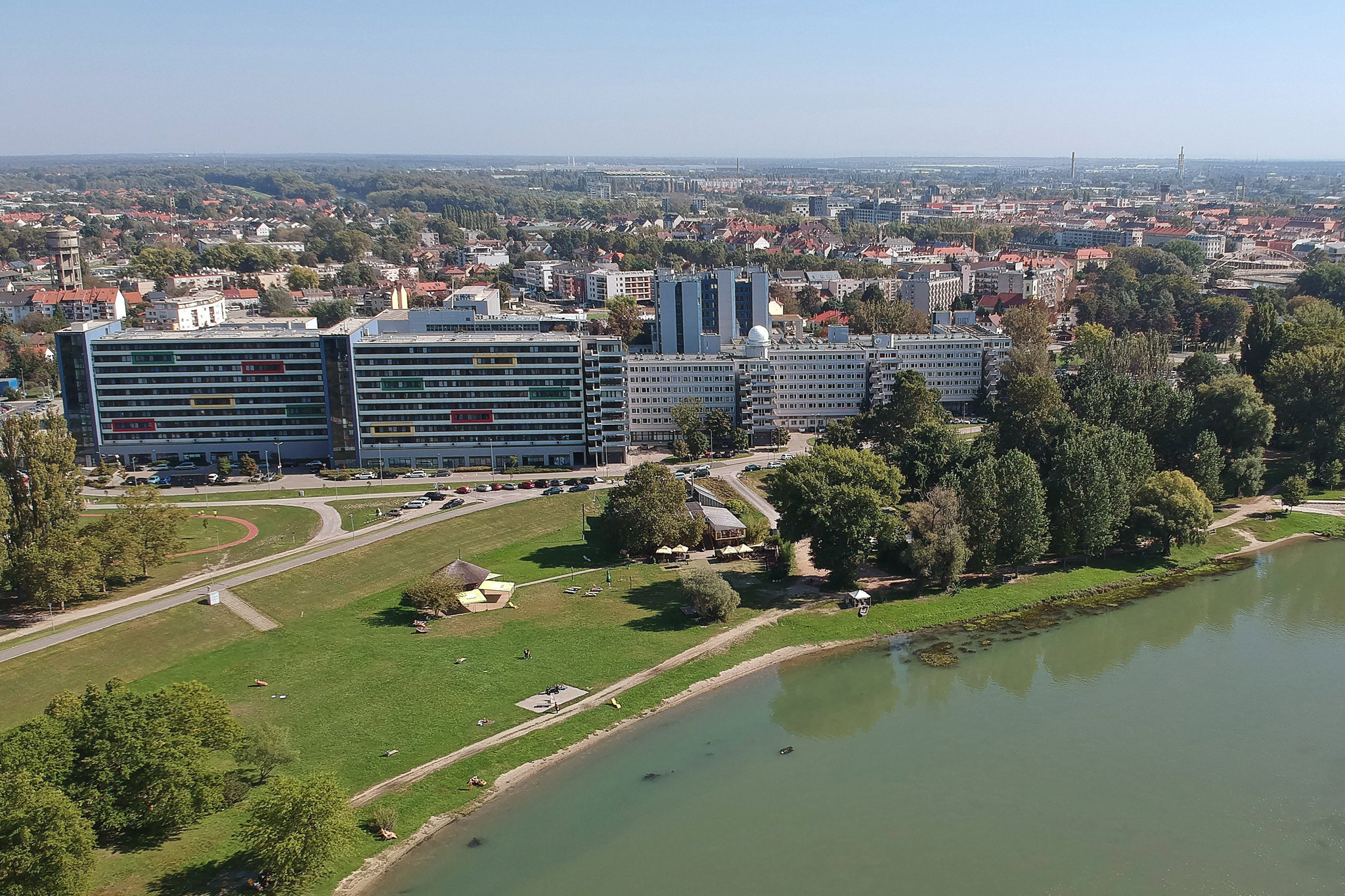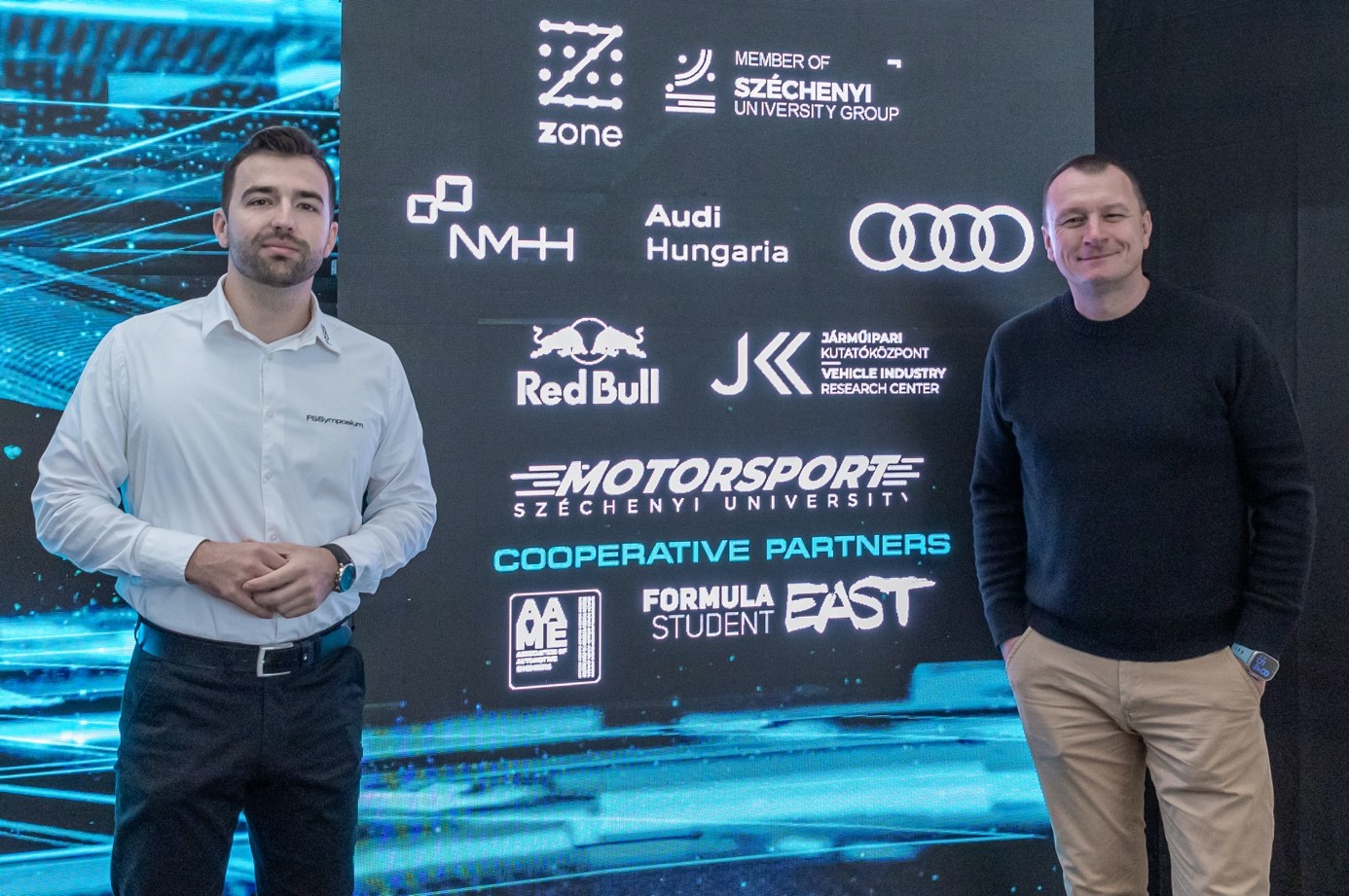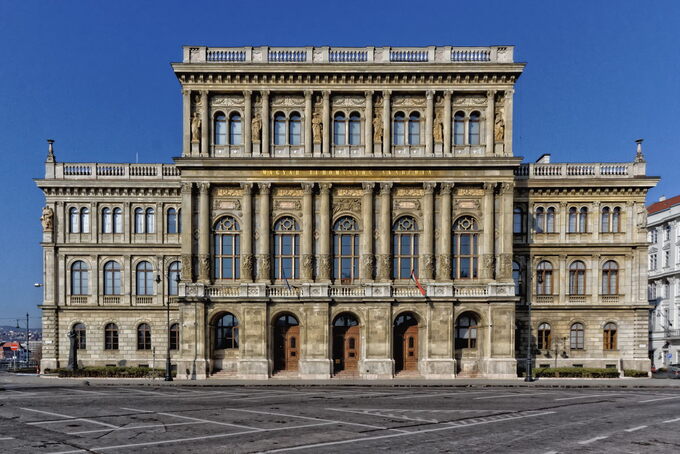
 The Széchenyi István University pays special attention to contribute in an innovative way to novel solutions of industry and to the answers to transport challenges. Thanks to an EU project, the institution's road construction laboratory has recently been equipped with state-of-the-art equipment, which will expand the range of services provided to corporate partners and allow for further improvement of the quality of training.
The Széchenyi István University pays special attention to contribute in an innovative way to novel solutions of industry and to the answers to transport challenges. Thanks to an EU project, the institution's road construction laboratory has recently been equipped with state-of-the-art equipment, which will expand the range of services provided to corporate partners and allow for further improvement of the quality of training.
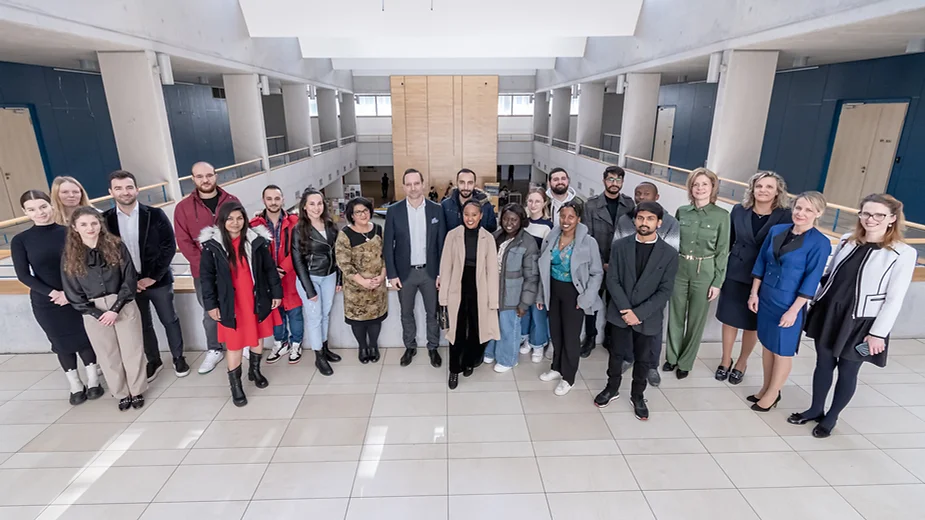 The Scholarship Programme for Christian Young People is very important for Széchenyi István University, where almost twenty students are studying under this programme, said Tristan Azbej, State Secretary responsible for programmes to help persecuted Christians, at a meeting with representatives of the institution.
The Scholarship Programme for Christian Young People is very important for Széchenyi István University, where almost twenty students are studying under this programme, said Tristan Azbej, State Secretary responsible for programmes to help persecuted Christians, at a meeting with representatives of the institution.
 Jeroen Vergeylen, Belgium's Ambassador to Hungary, who visited the Győr campus on 7 February, sees several areas of cooperation with Széchenyi István University. The diplomat spoke positively about the development of the institution and the quality of its infrastructure.
Jeroen Vergeylen, Belgium's Ambassador to Hungary, who visited the Győr campus on 7 February, sees several areas of cooperation with Széchenyi István University. The diplomat spoke positively about the development of the institution and the quality of its infrastructure.
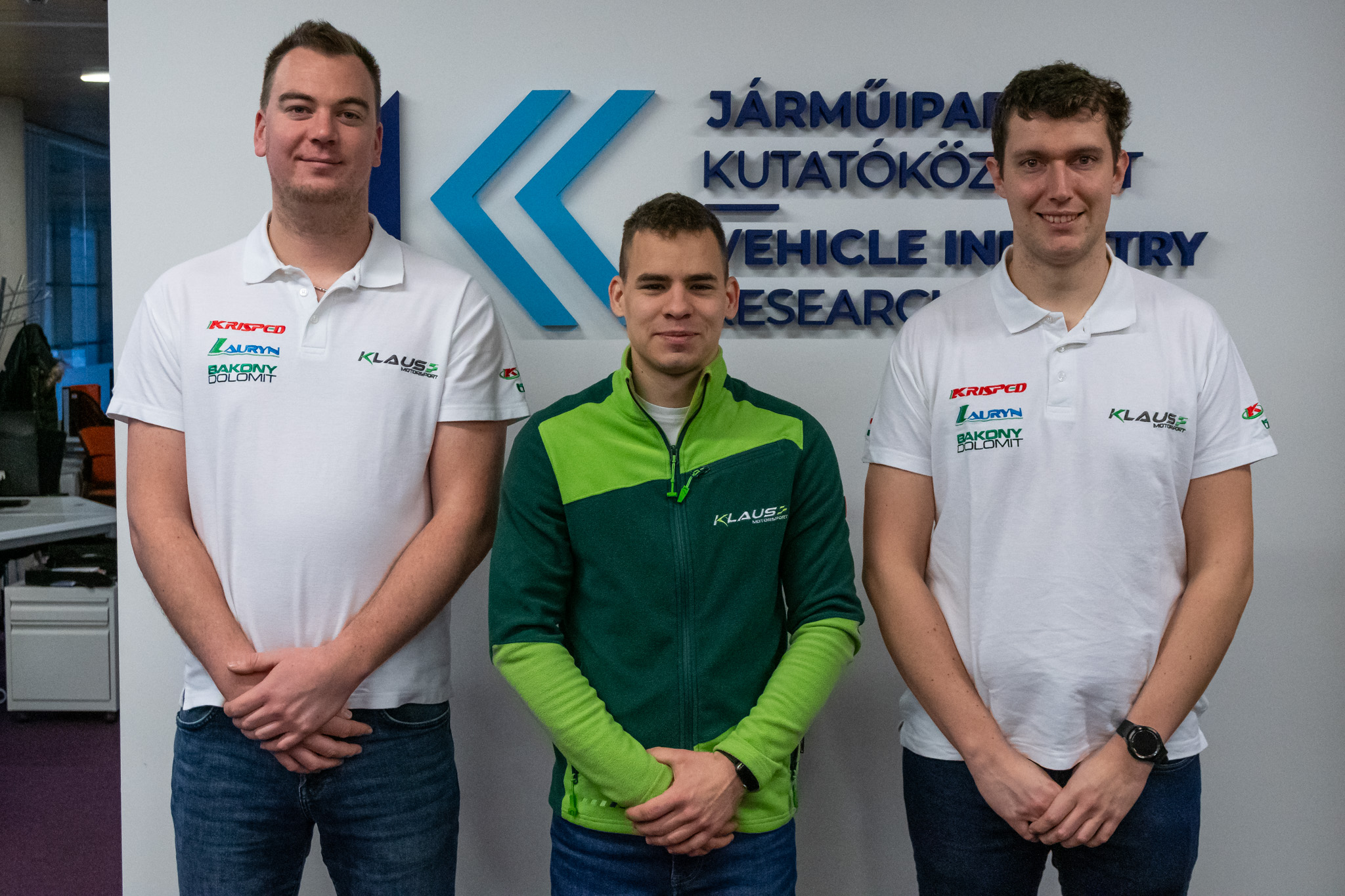 Kristóf Klausz, a student of mechanical engineering at Széchenyi István University, has been competing in the R5/Rally2 category since 2010, and from 2019 he has been competing in the R5/Rally2 category, aiming to win the national rally championship this year. The talented student is also assisted by two research engineers from the university: Máté Kapocsi and László Orova, who are also involved in the preparation, assembly and transport of the competition vehicle. The cooperation between the young professionals who have trained in the institution's Formula Student team and the pilot, shows that engineering education in Győr is closely linked to motorsport.
Kristóf Klausz, a student of mechanical engineering at Széchenyi István University, has been competing in the R5/Rally2 category since 2010, and from 2019 he has been competing in the R5/Rally2 category, aiming to win the national rally championship this year. The talented student is also assisted by two research engineers from the university: Máté Kapocsi and László Orova, who are also involved in the preparation, assembly and transport of the competition vehicle. The cooperation between the young professionals who have trained in the institution's Formula Student team and the pilot, shows that engineering education in Győr is closely linked to motorsport.
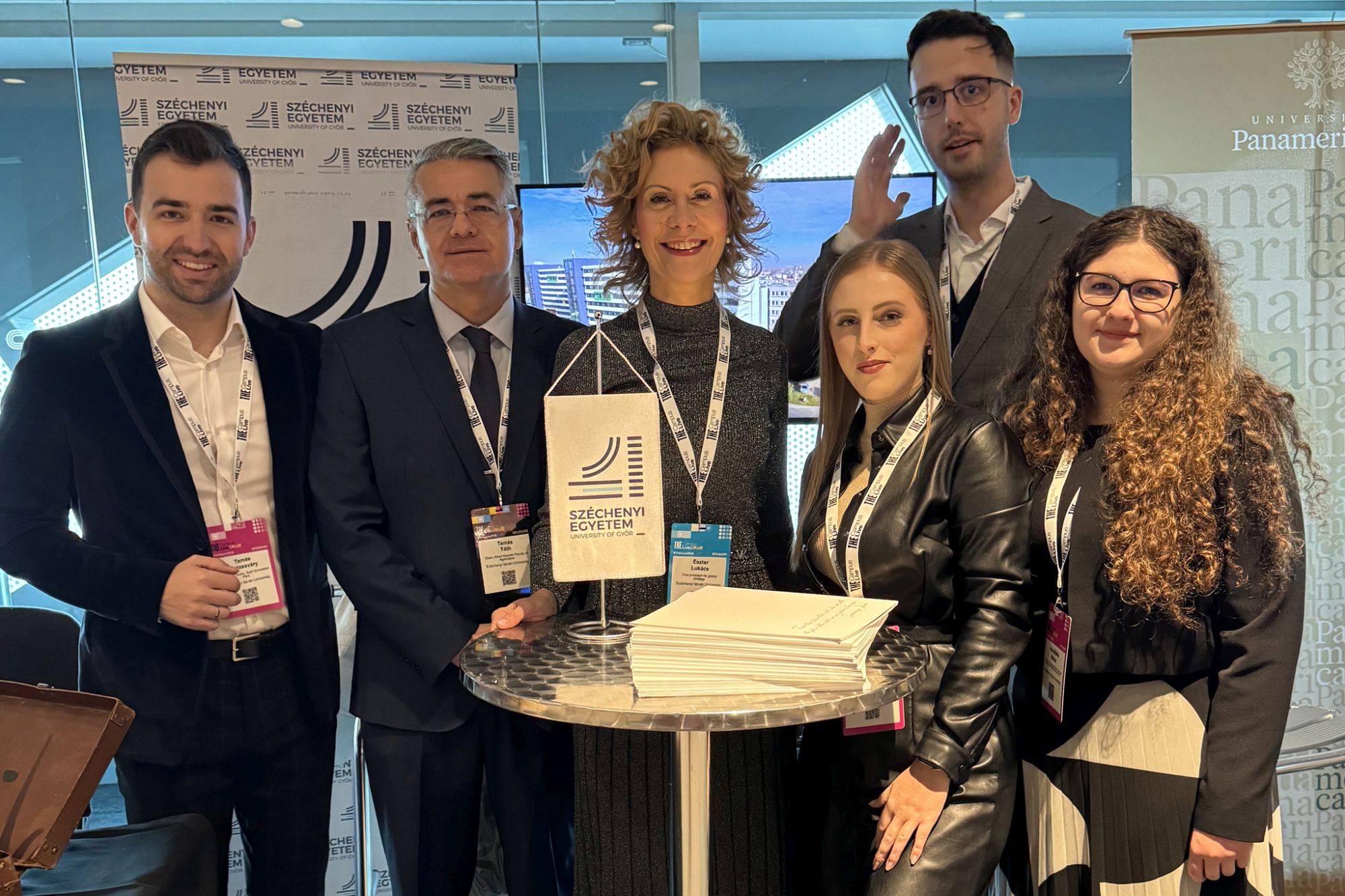 The Széchenyi István University of Győr, as a result of its development and its participation in the world rankings, was able to take part in the Campus Live Uk&IE event in Liverpool. The programme also included the THE Awards gala, the Oscars for higher education.
The Széchenyi István University of Győr, as a result of its development and its participation in the world rankings, was able to take part in the Campus Live Uk&IE event in Liverpool. The programme also included the THE Awards gala, the Oscars for higher education.
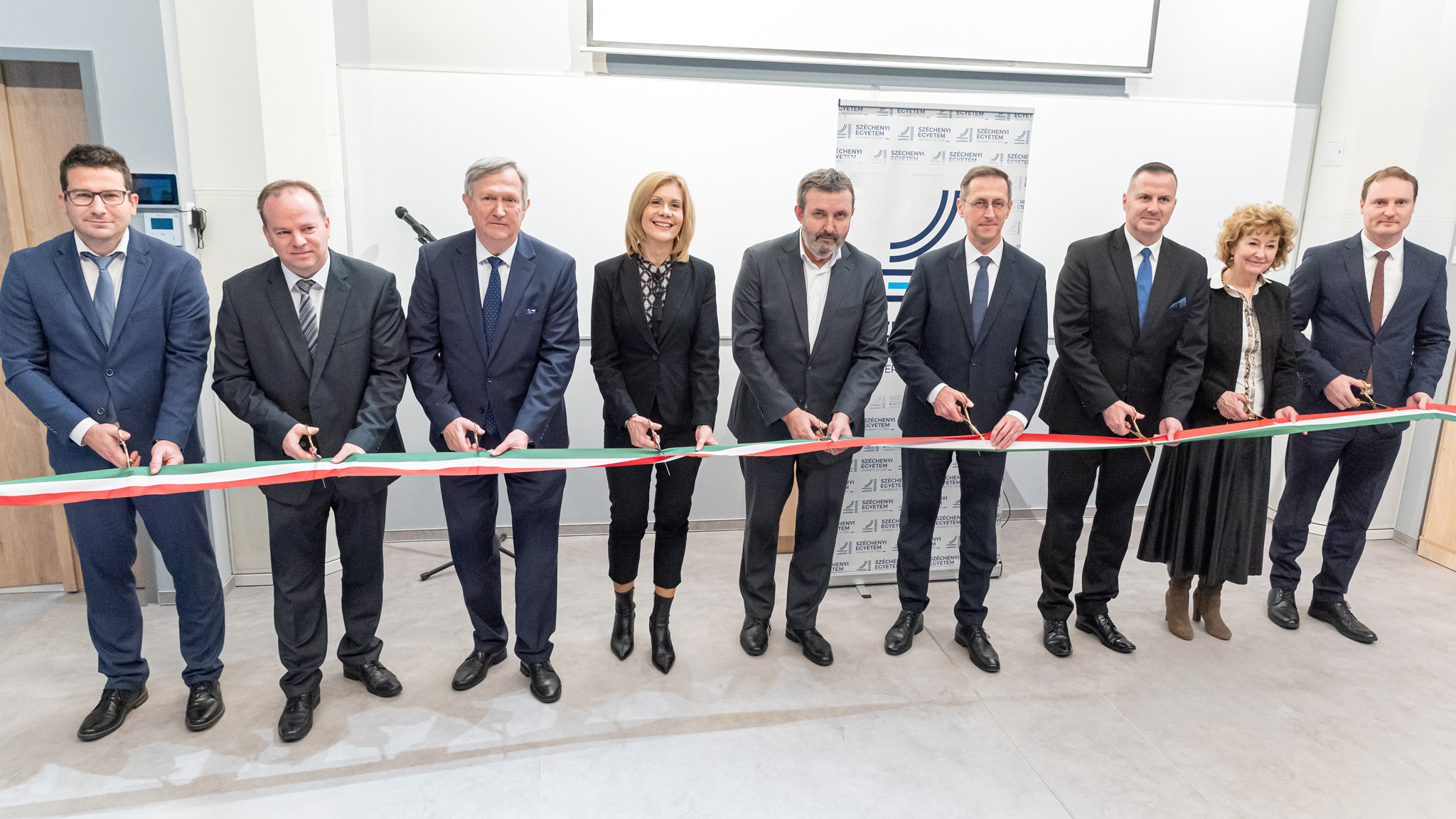 After the innovation and accommodation buildings, the auditorium of the Science and Innovation Park of Széchenyi István University has also been completed at ZalaZone in Zalaegerszeg. The aim of the HUF 740.2 million non-refundable EU grant awarded in the Economic Development and Innovation Operational Programme is to contribute to the competitiveness of the region by creating an internationally high-quality education and research environment.
After the innovation and accommodation buildings, the auditorium of the Science and Innovation Park of Széchenyi István University has also been completed at ZalaZone in Zalaegerszeg. The aim of the HUF 740.2 million non-refundable EU grant awarded in the Economic Development and Innovation Operational Programme is to contribute to the competitiveness of the region by creating an internationally high-quality education and research environment.
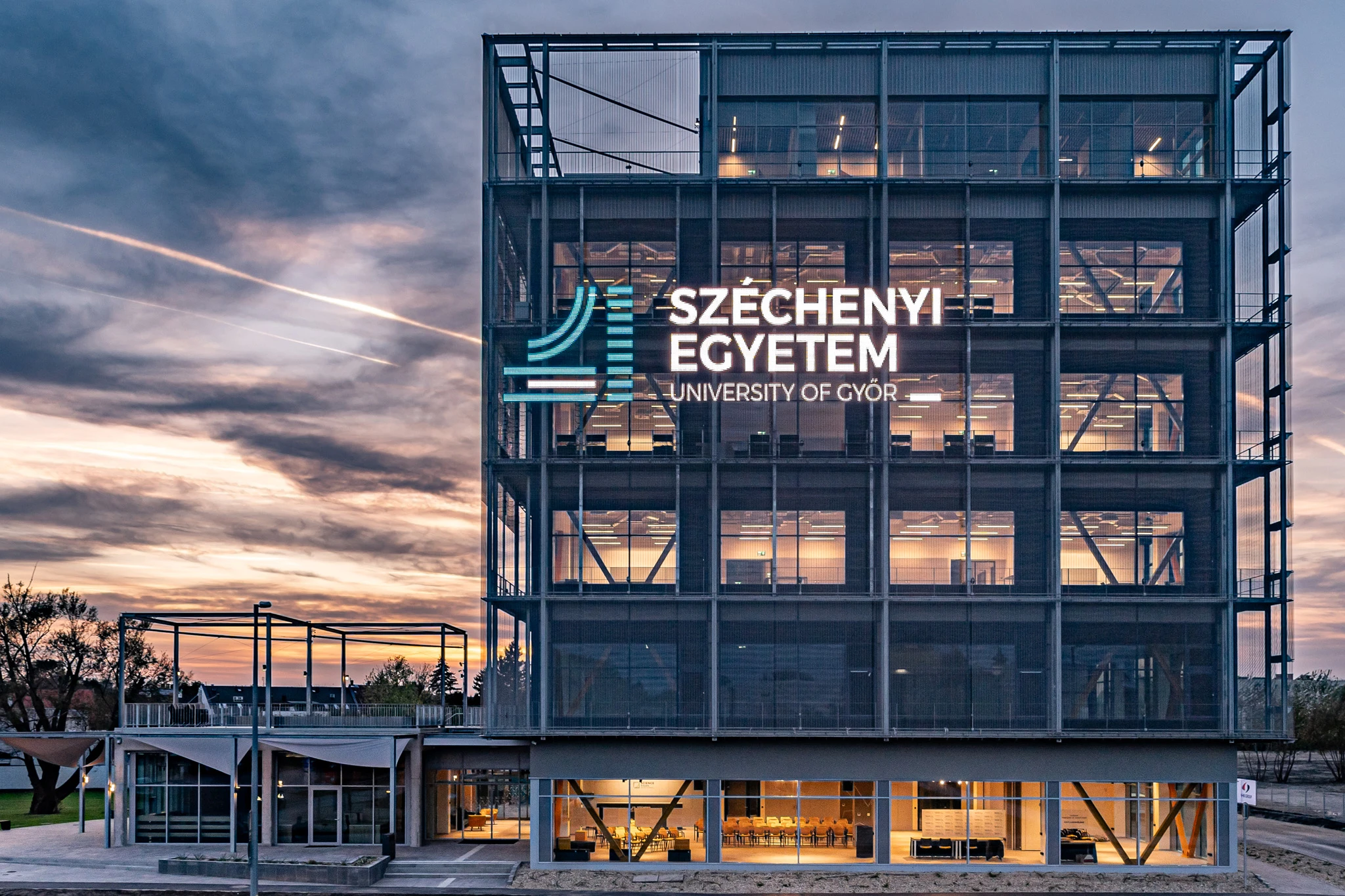
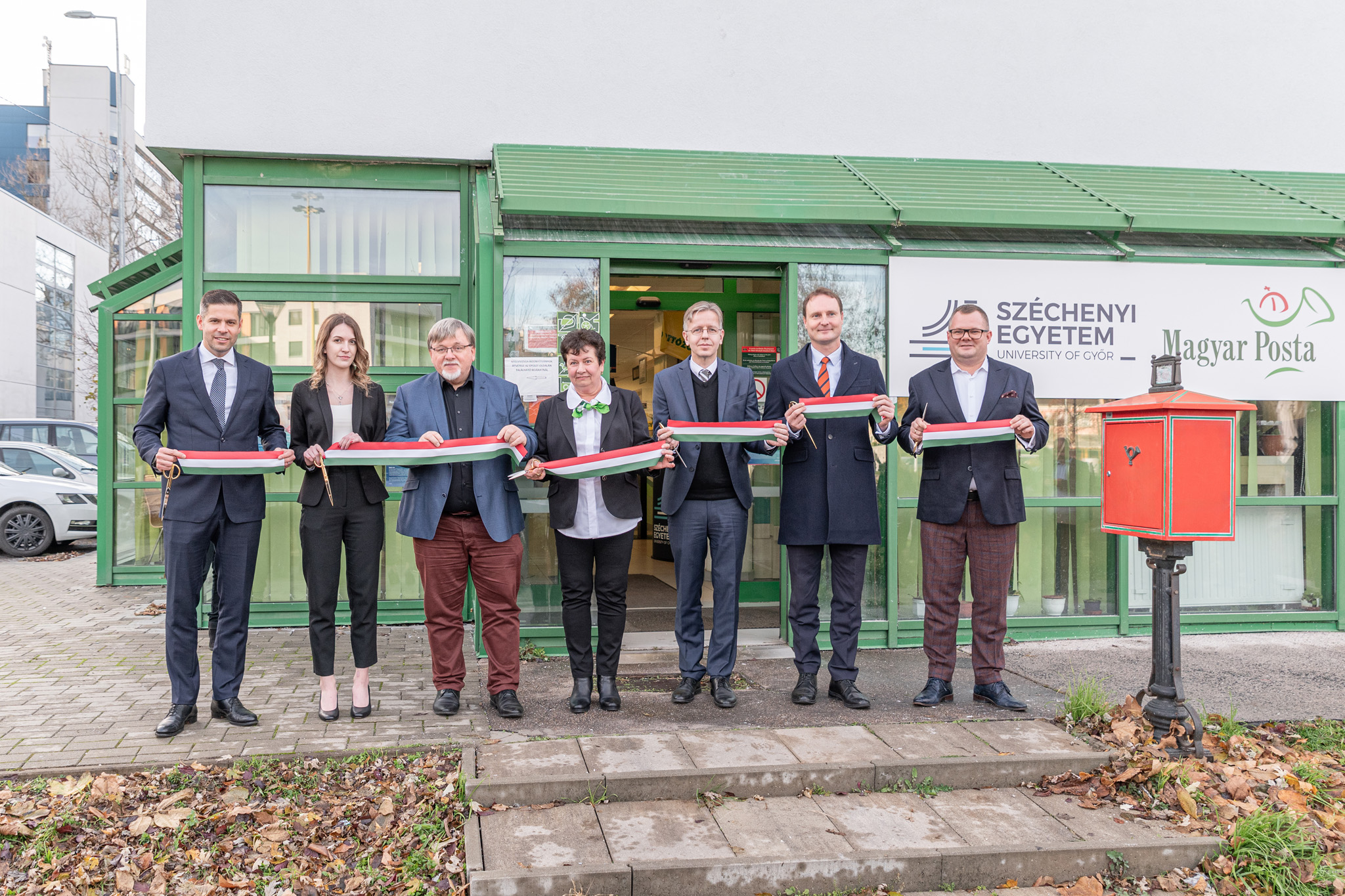 The Széchenyi István University has renovated the post office building on the Győr campus, which it bought in the autumn, providing modern conditions for the employees and the people who arrive there. The facility is also used for educational activities, so the development will not only indirectly but also directly benefit students and staff. The University will take over the operation of the post office as postal partner from 1 February 2024.
The Széchenyi István University has renovated the post office building on the Győr campus, which it bought in the autumn, providing modern conditions for the employees and the people who arrive there. The facility is also used for educational activities, so the development will not only indirectly but also directly benefit students and staff. The University will take over the operation of the post office as postal partner from 1 February 2024.
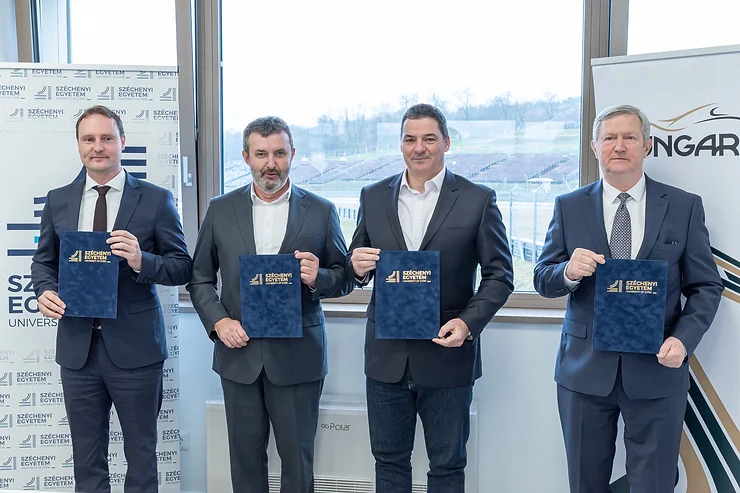 Support for programmes aimed at strengthening educational advancement and scientific community building, as well as the promotion of related developments, is at the heart of the cooperation agreement signed by Zsolt Gyulay, President and CEO of Hungaroring Sport Zrt. Prof. Dr. László Palkovics, Chairman of the Board of Trustees of the Széchenyi István University Foundation, Dr. Bálint Filep, President of Széchenyi István University and Prof. Dr. Ferenc Friedler, Rector and Vice-President for Academic Research of the University, signed the agreement on 28 November at Hungaroring.
Support for programmes aimed at strengthening educational advancement and scientific community building, as well as the promotion of related developments, is at the heart of the cooperation agreement signed by Zsolt Gyulay, President and CEO of Hungaroring Sport Zrt. Prof. Dr. László Palkovics, Chairman of the Board of Trustees of the Széchenyi István University Foundation, Dr. Bálint Filep, President of Széchenyi István University and Prof. Dr. Ferenc Friedler, Rector and Vice-President for Academic Research of the University, signed the agreement on 28 November at Hungaroring.
Dr. Attila Borsos, Associate Dean of the Faculty of Architecture, Civil and Transport Sciences at Széchenyi István University, has been elected to the governing body of the prestigious International Council on Road Traffic Safety Methods and Theories (ICTCT). In addition to his membership, the lecturer was also awarded the prize for the best oral presentation at the conference in Italy.
For the benefit of students, staff and residents alike, Széchenyi István University has purchased the post office building on the Győr campus from the Hungarian Post. The institution is renovating the facility and will take over the operation of the post office in February.
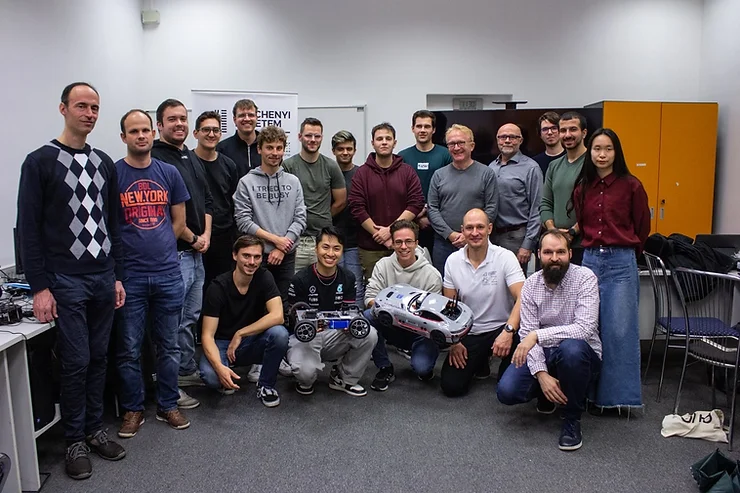 Széchenyi István University is taking part in an international project created by Bavarian-Hungarian intergovernmental cooperation, where students and staff of the institution are working on the development of self-driving vehicles in partnership with four Bavarian universities. As part of the programme, the German colleagues visited the University of Győr, where they took part in a multi-day workshop.
Széchenyi István University is taking part in an international project created by Bavarian-Hungarian intergovernmental cooperation, where students and staff of the institution are working on the development of self-driving vehicles in partnership with four Bavarian universities. As part of the programme, the German colleagues visited the University of Győr, where they took part in a multi-day workshop.
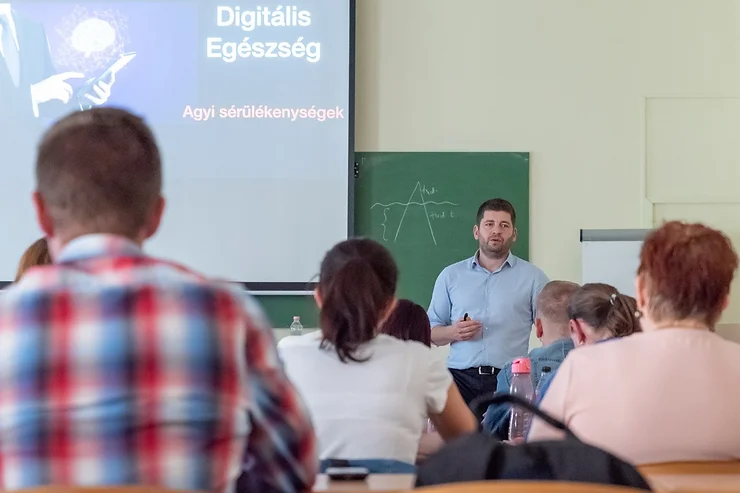 Micro-certificates are a new and effective way to implement lifelong learning in higher education and adult learning. Széchenyi István University has launched such short courses to help students and employees acquire specific knowledge in a particular field in response to labour market needs. The recently ended course, for example, provided new knowledge on the dangers of digital space and how to avoid them.
Micro-certificates are a new and effective way to implement lifelong learning in higher education and adult learning. Széchenyi István University has launched such short courses to help students and employees acquire specific knowledge in a particular field in response to labour market needs. The recently ended course, for example, provided new knowledge on the dangers of digital space and how to avoid them.
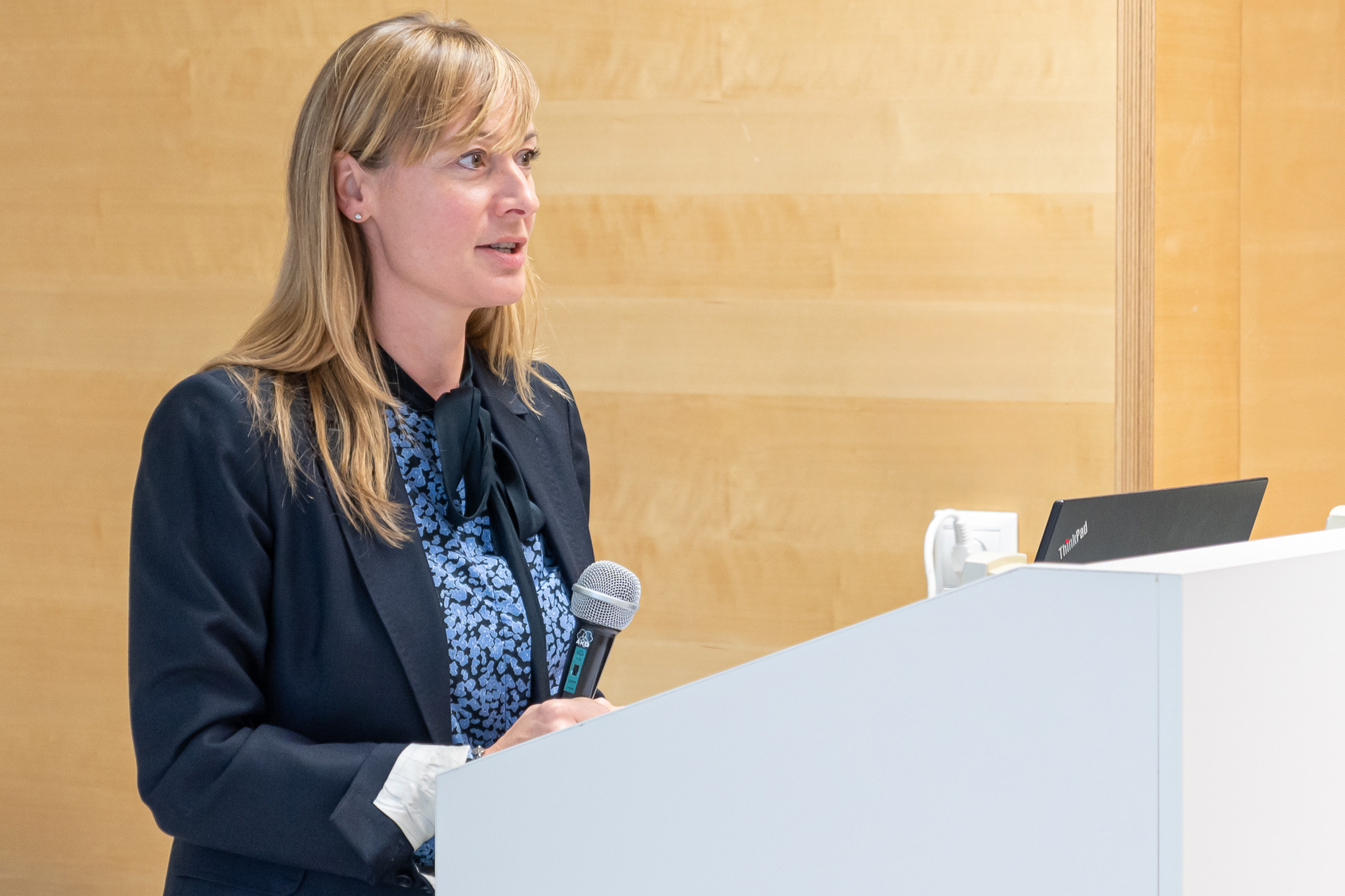 Dr Boglárka Ballester-Bólya, Commissioner at the Ministry of European Union Affairs responsible for EU presidency training, coordination of personnel policy tasks, and communication with non-governmental organizations, delivered a lecture at Széchenyi István University on the upcoming Hungarian EU Presidency in 2024 and the relevant preparations. The Hungarian presidency is unique in several aspects, coinciding with the twentieth anniversary of Hungary's accession in 2024 and occurring during a period of institutional change, including the European Parliament elections in June 2024.
Dr Boglárka Ballester-Bólya, Commissioner at the Ministry of European Union Affairs responsible for EU presidency training, coordination of personnel policy tasks, and communication with non-governmental organizations, delivered a lecture at Széchenyi István University on the upcoming Hungarian EU Presidency in 2024 and the relevant preparations. The Hungarian presidency is unique in several aspects, coinciding with the twentieth anniversary of Hungary's accession in 2024 and occurring during a period of institutional change, including the European Parliament elections in June 2024.
 Széchenyi István University's mini-conference series aligns with the United Nations' sustainable development goals, exploring the theme of gender equality via invited external speakers. The latest event focused on how to promote greater involvement of women in the scientific world.
Széchenyi István University's mini-conference series aligns with the United Nations' sustainable development goals, exploring the theme of gender equality via invited external speakers. The latest event focused on how to promote greater involvement of women in the scientific world.
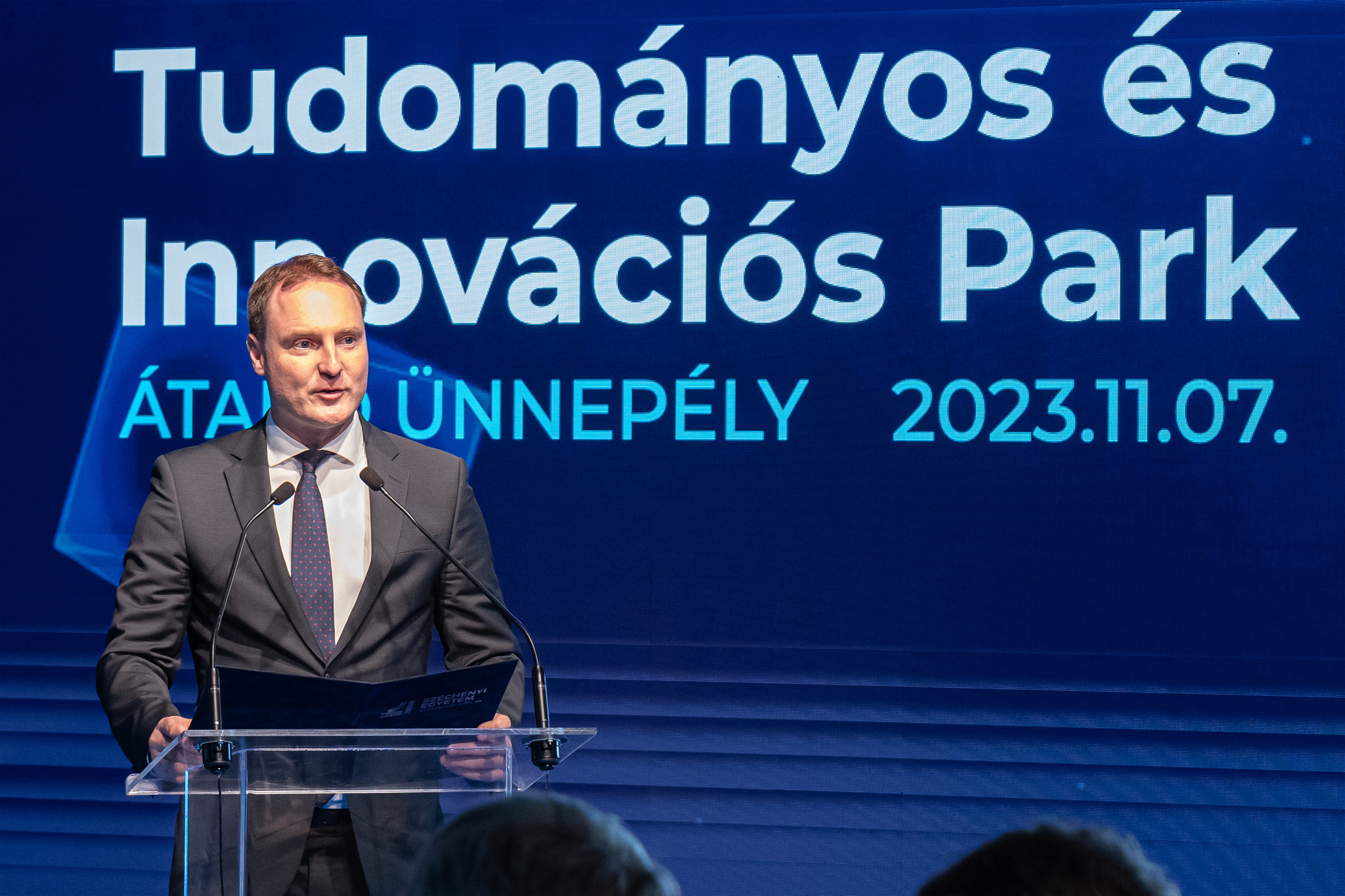 The inauguration ceremony of the Science and Innovation Park of Széchenyi István University in Győr was held on 7 November, just 500 metres from the central campus, on the former site of a Biscuits and Wafers Factory. An emblematic industrial landmark of the city, the "cubic building" will become a bastion of the dynamically developing university innovation ecosystem, where the institution will provide a space for higher education and industry collaborations, new research and development projects and the implementation of innovative ideas.
The inauguration ceremony of the Science and Innovation Park of Széchenyi István University in Győr was held on 7 November, just 500 metres from the central campus, on the former site of a Biscuits and Wafers Factory. An emblematic industrial landmark of the city, the "cubic building" will become a bastion of the dynamically developing university innovation ecosystem, where the institution will provide a space for higher education and industry collaborations, new research and development projects and the implementation of innovative ideas.
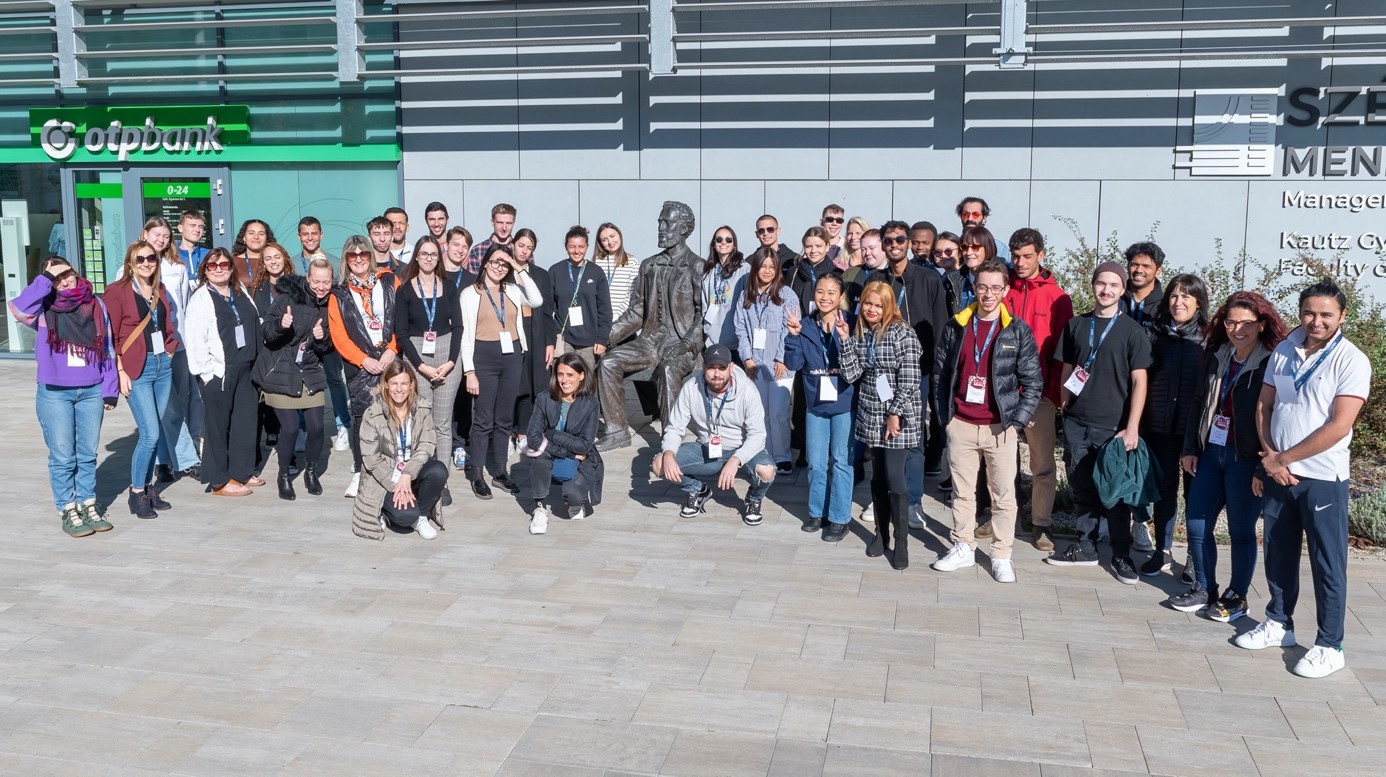 The Regional University Network-European University (RUN-EU) consortium brought together more than fifty international students and academic staff for short training programmes at Széchenyi István University. Participants learned about intercultural relations and communication through exciting workshops and lectures.
The Regional University Network-European University (RUN-EU) consortium brought together more than fifty international students and academic staff for short training programmes at Széchenyi István University. Participants learned about intercultural relations and communication through exciting workshops and lectures.
.jpg) Can Elon Musk's plan to put a man on Mars by 2029 succeed? Can we communicate more effectively in space with lasers or radio signals? What will humanity do about space control? And is the space business worth investing in or will the segment touted as the business of the future pop like a balloon? These were the questions that Széchenyi István University's first Spinoff Club event in the autumn sought to answer, where the topic was approached from three different angles by the institution's experts: from the rocketry side by Dr. Dániel Feszty, from the telecommunications side by Dr. Péter Vári, and from the space law side by Dr. Gábor Sulyok.
Can Elon Musk's plan to put a man on Mars by 2029 succeed? Can we communicate more effectively in space with lasers or radio signals? What will humanity do about space control? And is the space business worth investing in or will the segment touted as the business of the future pop like a balloon? These were the questions that Széchenyi István University's first Spinoff Club event in the autumn sought to answer, where the topic was approached from three different angles by the institution's experts: from the rocketry side by Dr. Dániel Feszty, from the telecommunications side by Dr. Péter Vári, and from the space law side by Dr. Gábor Sulyok.
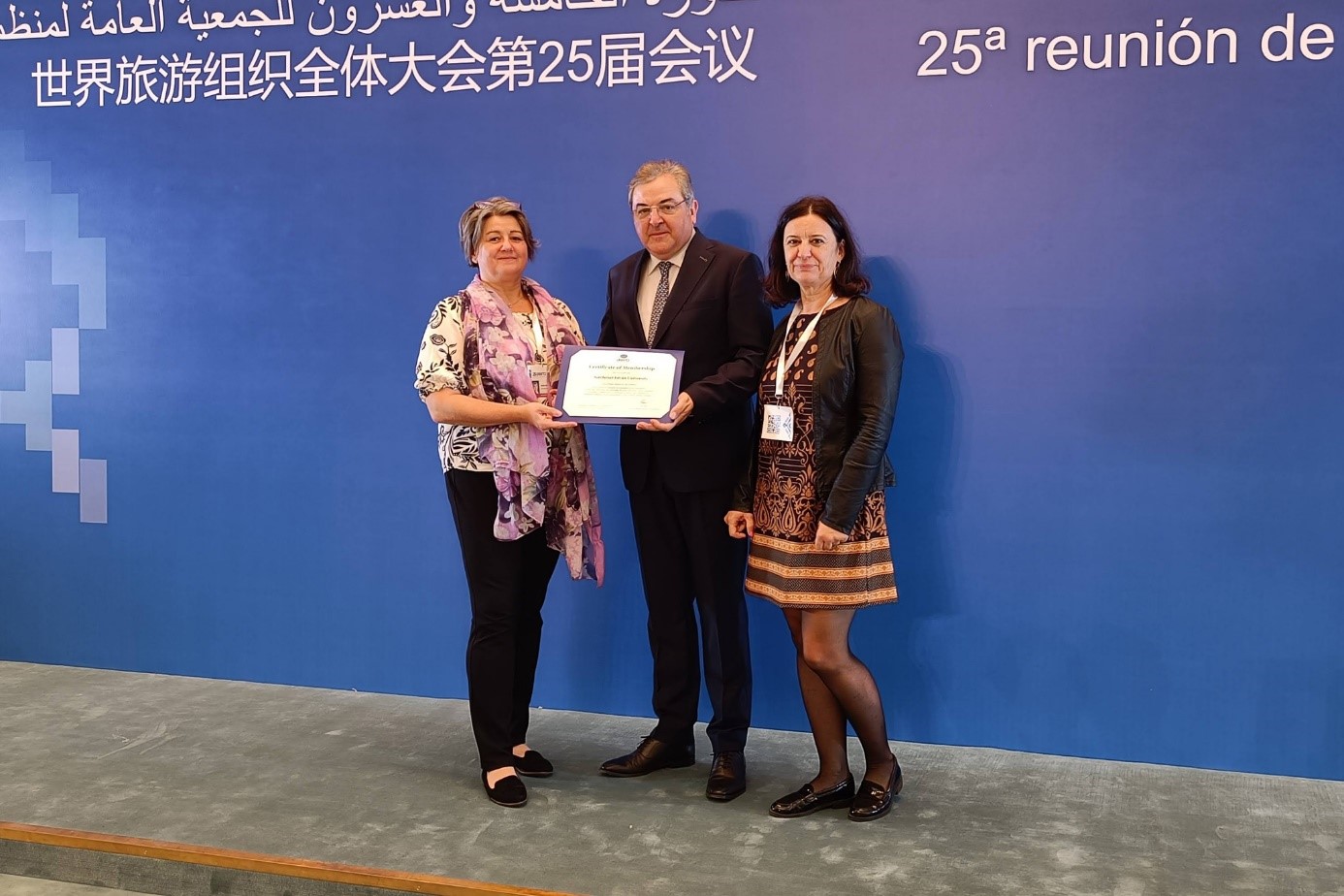 At its 25th General Assembly, the United Nations World Tourism Organization (UNWTO) approved the associate membership of Széchenyi István University. The accession of the institution means new opportunities for international contacts, access to the latest data in the sector - which also supports education - and cooperation in the field of tenders and research.
At its 25th General Assembly, the United Nations World Tourism Organization (UNWTO) approved the associate membership of Széchenyi István University. The accession of the institution means new opportunities for international contacts, access to the latest data in the sector - which also supports education - and cooperation in the field of tenders and research.
Contacts
Address
Var Square 2, H-9200 Mosonmagyarovar, Hungary


